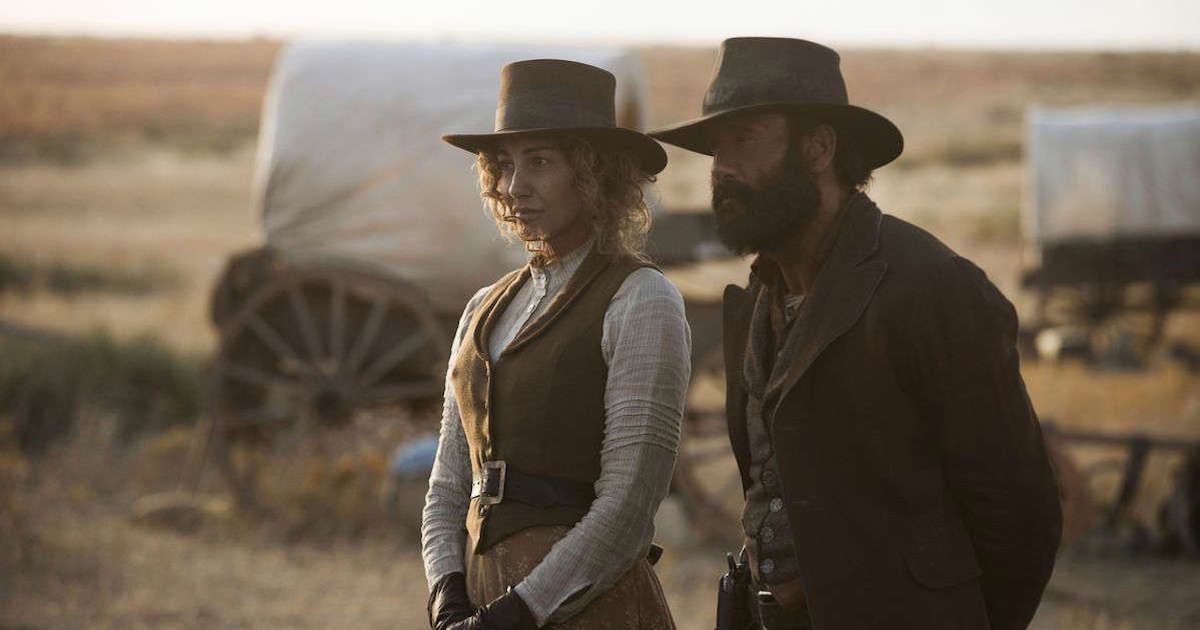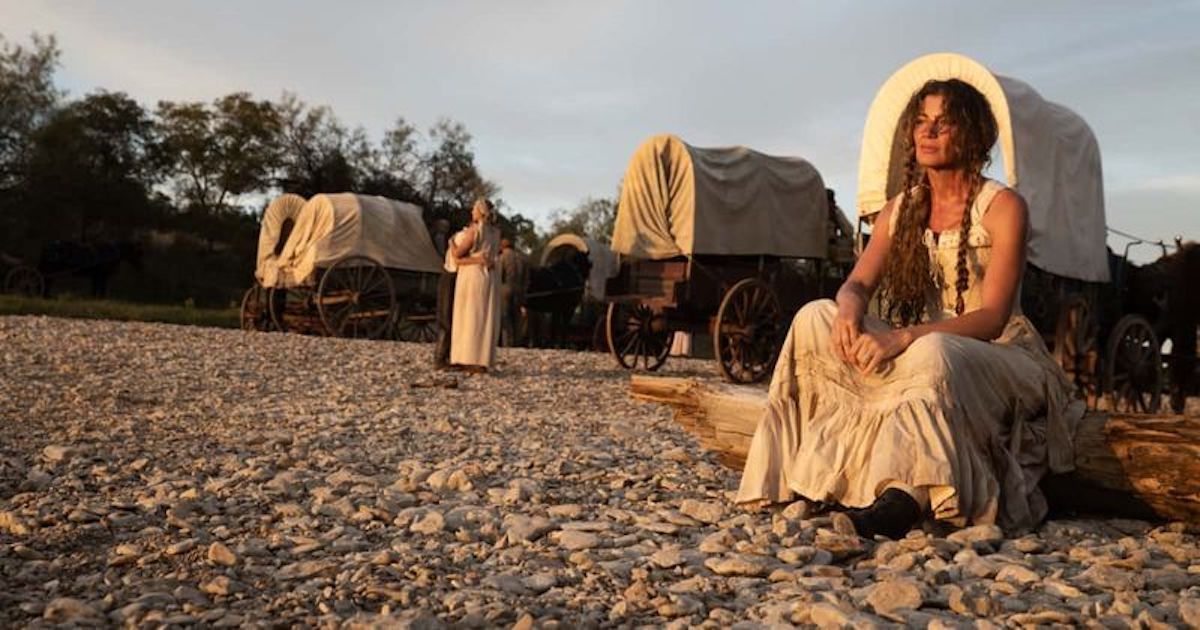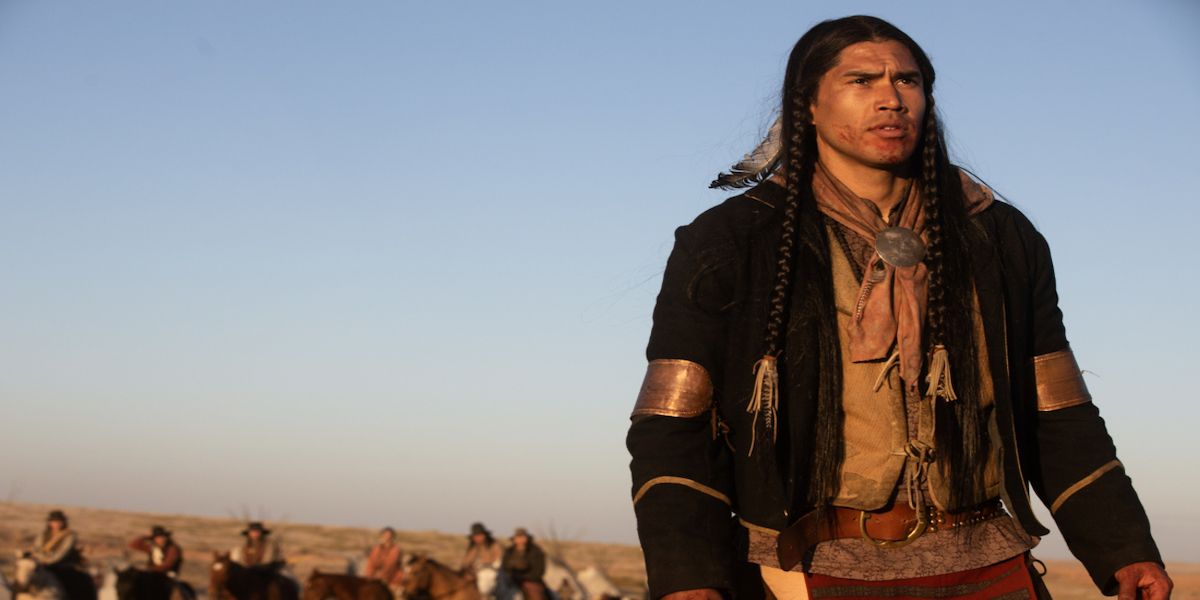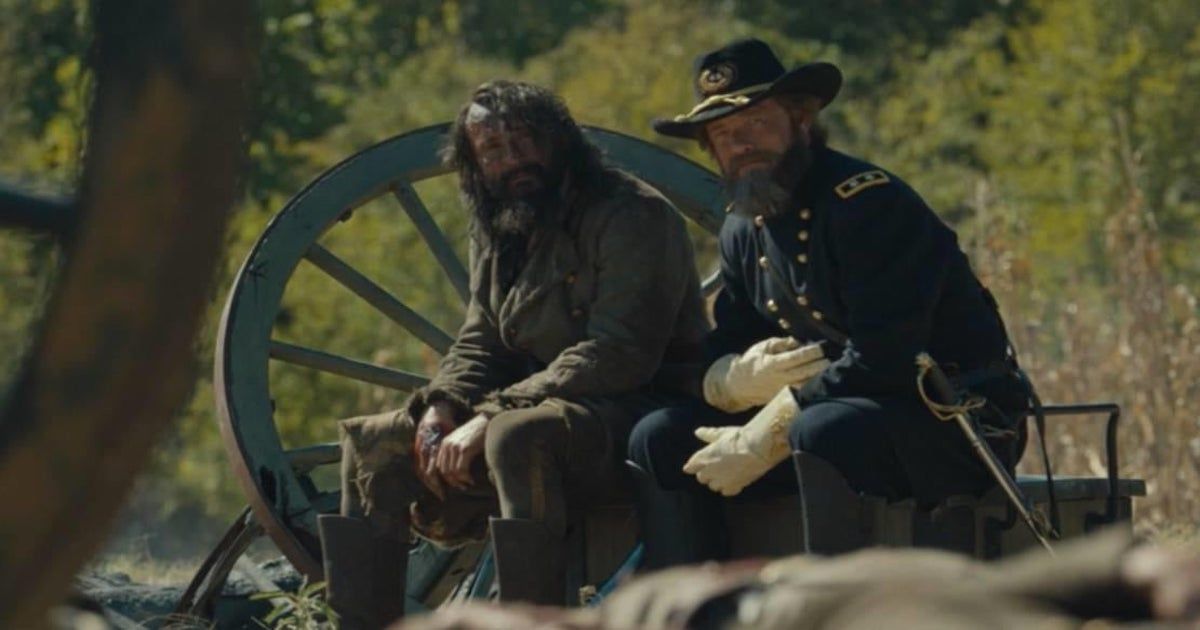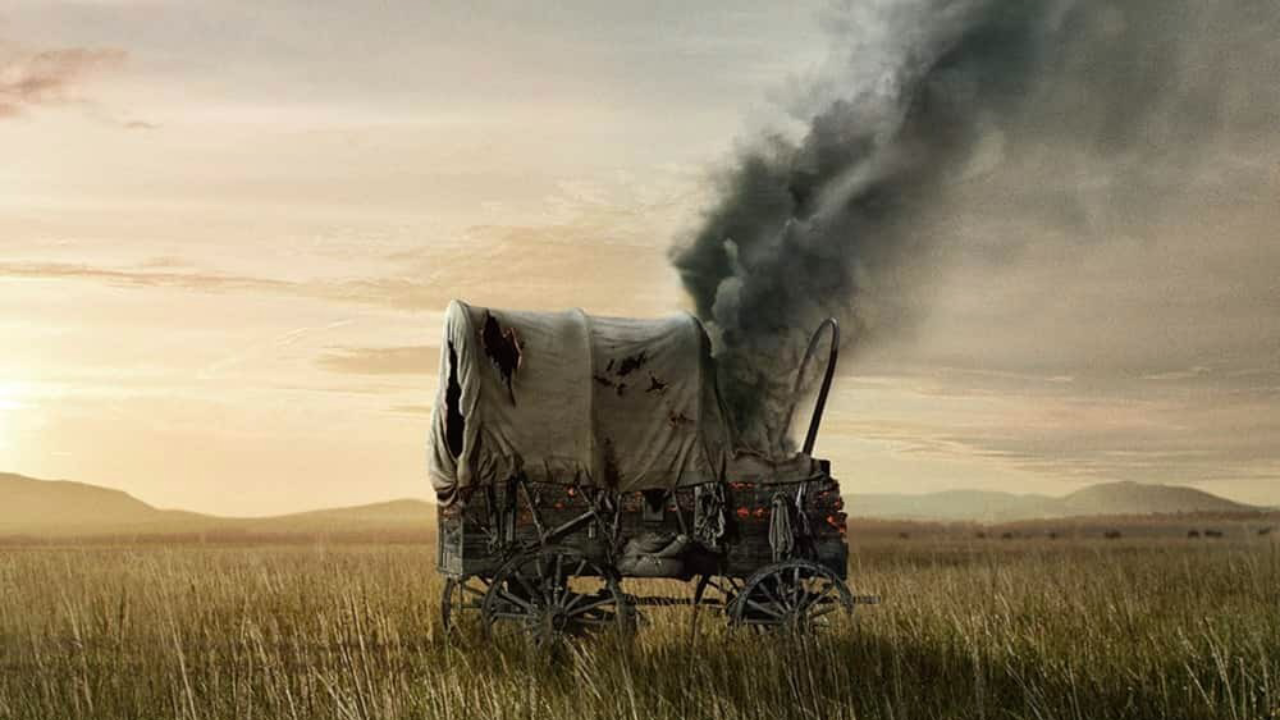Taylor Sheridan has emerged as one of the few and most profound writers of the modern-American Western. There was a time when the Western was the most popular genre in Hollywood, but today it's one of, if not the least popular genre. Many of the reasons for the decline of the Western have to do with a severe lack of realism, anti-Native American attitudes, pro-Confederate sympathies, and the macho lead actor who solves his problems with a pistol. For many audience goers in today's times, these are not ideas they're comfortable with, nor support, like they did post-WWII. Sheridan has discovered a way to bring the Western into the modern era, crafting a brutal tale of survival with 1883, a Yellowstone prequel.
1883 is an origin story about the Dutton family, showing their struggle in obtaining the land they'll one day come to call "The Yellowstone." Two Pinkerton Detectives, by Shea (Sam Elliott) and Thomas (LaMonica Garrett), get tasked with shepherding a group of European immigrants from Fort Worth, Texas, to Oregon along the famous Oregon Trail. After realizing the lack of preparedness on the part of the immigrants, in terms of self-defense and awareness of the conditions they'll face, the Pinkertons ask a scrappy farmer by the name of James Dutton (Tim McGraw) to join them.
Dutton had been waiting on his family to arrive in Texas, so they could head out to the Pacific Northwest to secure a new home. Realizing the dangers he and his family would face alone, Dutton decides to join up with the caravan in hopes of securing strength in numbers. Sheridan comes to illustrate to the audience that the West is unforgiving and cruel, an entity indifferent to the plight of those that patter along its ground. No matter the numbers, the strength of nature and cruelty of man can't be outmatched.
Brutal Realities
One of the starkest realities of the American West was that minor things could often lead to a person's demise apart from murderous bandits. Sheridan does an excellent job of capturing this in 1883. Before even departing from the outskirts of Fort Worth, several of the immigrants die from dysentery and rattlesnakes bites, while many others fall sick from failing to heed the advice of Shea, who tells them not to drink the river water. Apart from external factors, the immigrants have issues surviving the trip due to internal division and the lack of shared nationality. The immigrants come from Slavic, German, Nordic, and Romani backgrounds, leading to conflict based on opposition of values, theft, and misunderstandings.
Throughout their trip along the trail, Shea tries to get Josef (Marc Ressmann), the selected leader, to keep his people in line. He is never able to, eventually leading to the group breaking up and being killed by roaming raiders in the series finale. The thin rope the immigrants walk between life and death on the frontier is best emphasized when Josef and his wife, Risa (Anna Fiamora), are riding along the trail when Risa's horse is bitten by a rattlesnake, bucking her off and breaking her back. Josef tries to render aid to Risa but is bitten by the snake himself. The aftermath is that Josef loses his leg, and Risa succumbs to her injuries. In the finale, Josef is forced to settle his homestead alone while on crutches, the course of a life changed by a split second in error.
The dangers of smallpox during the time of 1883 are emphasized. At the start of the series, Shea loses his wife and daughter to smallpox and is forced to burn their bodies and house to the ground to rid it of the disease. Before setting off on the trail, Shea has all the immigrants checked for smallpox. One person is discovered as having smallpox and exiled from the group, as Shea threatens them with death if they return. The lack of medical care is best shown with the death of the lead character, Elsa Dutton (Isabel May). Elsa takes an arrow from the Lakota while trying to lead them away from the rest of the caravan. Despite being able to remove the arrow, her wound gets infected. The only place that can render Elsa medical treatment is at Fort Casper, but upon getting there, the doctor tells them they don't have the materials to operate. Elsa is redirected to Fort Laramie, but due to the distance, she is doomed to die before they make it there. Rivers pose an enormous danger as well, as when approaching the Brazos River, the caravan has to figure out if it's safe to go through. Many things, from the current to marshes to the depth and even the swimming ability of the immigrants' factor into the group's choice. Even after they make it through, many immigrants die during the crossing.
Representation
Sheridan's Westerns do an excellent job representing the different people of the period, and 1883 is no exception. While traversing Oklahoma, the caravan has to gain permission from the Comanche to pass. When the Comanche comes to break bread with the group, Elsa takes a liking to Sam, one of the visiting warriors. Sam calls Elsa "lightning with the yellow hair," and immediately, she gains the respect of the Comanche with her profound riding abilities. As Sam and Elsa's relationship progresses, Sam brings a horse to James to ask for his daughter's hand in marriage. James gives it. His thought isn't whether Sam is a native or not, but whether he makes her happy, thus agreeing to sanctify their marriage. When the Lakota attack Elsa and the caravan near the end of the season, it isn't out of sport but as an act of revenge for the families they believed the caravaners killed. When the Lakota discover that James, Shea, and Thomas had killed the real perpetrators, they cease their attacks.
Westerns from the post-WWII period would often portray the Natives as violent savages without honor. However, this moment shows a profound honor in these fierce warriors, one that Sheridan respects across all his works from Wind River to Yellowstone. The Lakota don't apologize for fighting and spilling blood over the honor of their family, but unlike the government, they won't continue to shed blood when they discover they're wrong.
Sheridan's female leads in 1883 are quite strong. Margaret (Faith Hill) and Elsa know how to ride horses and hold their own. Margaret heroically defends her family with a rifle, and Elsa becomes a cowgirl, displaying skills that rival her fellow cowboys. Thomas, a former Union soldier, is the only African-American member of the caravan. Despite the time he is living in, he is treated as an equal amongst the caravan, facing little of the prejudice he would have in the South. Survival is the ideology on the frontier, as people from all walks of life join together to fight off the shared threats that face them along the trail.
Shadow of the Civil War
1883 takes place eighteen years after the American Civil War, with four of its leads having been a part of it. John had served as a Confederate Captain, Thomas a Union soldier, and Shea a Union Captain, while Margaret served as a nurse. Ideology is never mentioned by any of the characters. In fact, all look back on the war with horror. Shea had felt responsible for the men he had led to their death under his command, as did John, who weeps beside George Meade (Tom Hanks) as he looks upon his dead soldiers at The Battle of Antietam.
While many of the older Westerns would often have people believe that it was the shame of the defeat and elation of victory that fueled former Confederates and Union soldiers, in 1883, it was their shared shame in the loss of people on both sides of the flag. John was kept in a Union prison camp for over three years and almost starved, one would think this would empower ideology and the drive for revenge, but instead, John put it behind him and couldn't care less if he fought alongside Union soldiers or not. What these four have in common is the shared knowledge of the cost of war and the desire to flee its battlegrounds for the promise of a New Frontier. As far as they were concerned, these four left the world, as much of the land in the Westward United States was a complete unknown, waiting to be traversed. A constant theme in 1883 is that for the immigrants and the soldiers, the unknown is better than the cruelty you know.
Despite gaining the land, which will become Yellowstone, John might not have been the character that won out. Margaret, at one point, tells Elsa that she's lucky because, unlike her, Elsa has the confidence to be a free woman and not kowtow to society's expectations. While admiring Elsa, Margaret also knows that once they reach their new homestead, she'll have to return to society and its expectations. Elsa never has to, though. She dies free, having lived a lifetime more than most on the frontier. On her deathbed, the final image that Elsa recounts is of her riding beside Sam on the plains for eternity.
Like Elsa, the majority of 1883's characters yearn for the same, to leave society and never come back, to discover new laws and lands, hoping to find Eden in their lifetime, whether it exists or not. Sheridan paints a picture of the West not often seen, one of people of all colors and creeds coming together for a common goal, to survive in the hopes of finding something better than the known. It's a refreshing take on the Western, showing the power of Sheridan's words in building a new era for the once towering Western genre.

